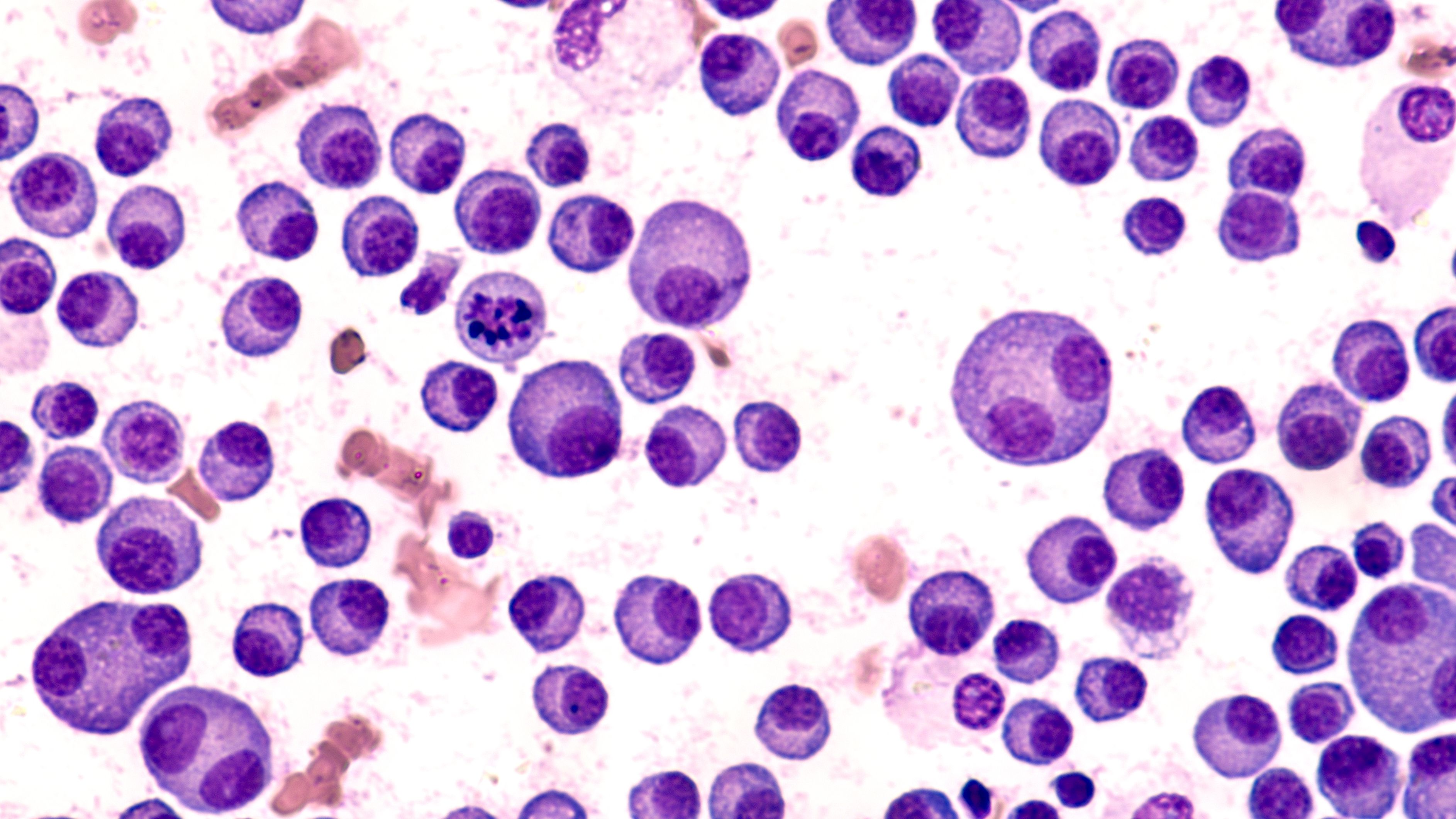News
Article
Early Evidence Shows Mezigdomide With Dexamethasone Effective for Treatment-Resistant Multiple Myeloma
Author(s):
Mezigdomide boosted T cell activity and worked in patients with multiple myeloma who were resistant to prior therapeutic agents.
More than one-third of patients with relapsed or drug-resistant multiple myeloma (MM) benefited from a novel combination of mezigdomide with dexamethasone, according to a new clinical trial led by investigators at Dana-Farber Cancer Institute and published in the New England Journal of Medicine. At the 6-month follow-up, the objective response rate (ORR) was 40.6% and least a 50% of patients had a reduction in disease burden.
Image credit: David A Litman | stock.adobe.com

"Our findings show that mezigdomide in combination with dexamethasone has important clinical activity in this group of patients with very hard to treat myeloma," said study leader Paul Richardson, MD, Dana-Farber, in a press release.
The phase 1/2 study included 178 high-risk patients with MM (aged 42 to 85 years) who are triple class refractory—having received at least 3 prior lines of therapy but continuing to have refractory disease or drug resistance—and do not respond to standard therapies. Participants were administered a daily 1 mg pill of mezigdomide for 3 weeks, followed by a 20 mg (older adults) or 40 mg pill of dexamethasone every 7 days during the trial period.
The average progression-free survival (PFS) was approximately 4 months. Median duration of response (DOR) was nearly double the PFS, at 8 months. Fortunately, the average PFS is likely to improve with time and the 9-month partial response observed in the study is likely to increase with time as well, according to the authors.
At least 50% of participants had failed a prior line of anti-B-cell maturation antigen (BCMA) targeted-therapy. BCMA therapies include chimeric antigen receptor (CAR) T-cell therapies, bispecific monoclonal antibodies, and certain antibody drug conjugates, such as belantamab mafodotin-blmf.
“This was particularly noteworthy because we were able to see responses in patients who had received prior BCMA-targeted therapy and in myeloma that had spread beyond the bone marrow and developed aggressive extramedullary disease, which is associated with an especially poor prognosis," Richardson said in the press release.
The most common adverse event associated with mezigdomide/dexamethasone was low white blood cell count (neutropenia), but it was manageable, and few patients dropped from the trial because of it.
Mezigdomide inhibits the protein activity of transcription factors Ikaros and Aiolos. These transcription factors regulate myeloma cell gene activation, thus stopping gene activation is an important form of defense against the cancer. But mezigdomide stops gene activation in mononuclear blood cells at the same time, and in effect, certain T cells are activated and rally the immune system's “most adept cancer fighters.”
"We're hopeful that this body of data provides substantial evidence of the value of this approach to patients with an urgent unmet medical need, and further supports this oral agent being tested in combination with other back bone therapies, where our preliminary results are already promising, and now are being evaluated as part of larger, ongoing phase 3 clinical trials," Richardson said in the press release.
Reference
Potent oral agent that acts as both immunotherapy and targeted treatment produces high response rate in patients with hard-to-treat and refractory multiple myeloma when combined with steroid, trial shows. Dana-Farber Cancer Institute. News Release. August 30, 2023. Accessed on September 1, 2023. https://www.eurekalert.org/news-releases/999785.
Newsletter
Stay informed on drug updates, treatment guidelines, and pharmacy practice trends—subscribe to Pharmacy Times for weekly clinical insights.






